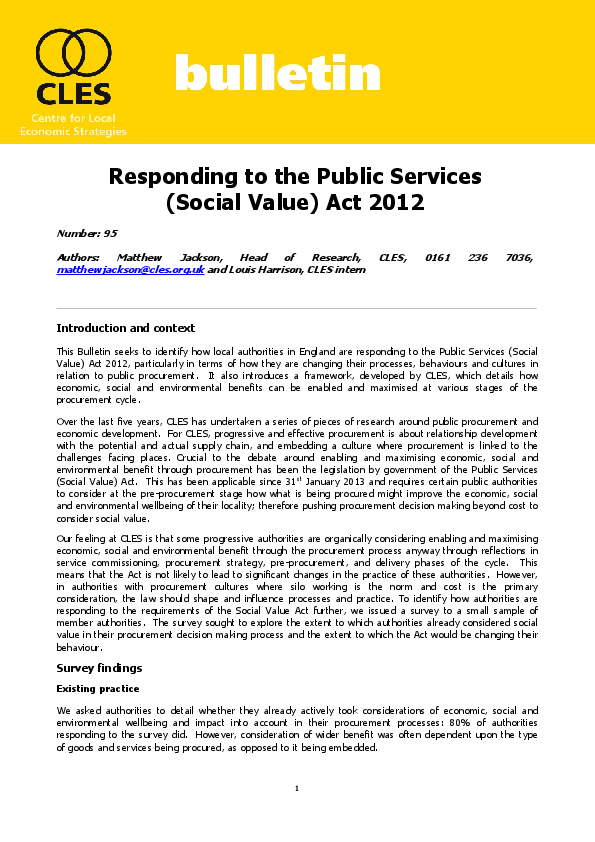Responding to the Public Services (Social Value) Act 2012
This Bulletin seeks to identify how local authorities in England are responding to the Public Services (Social Value) Act 2012, particularly in terms of how they are changing their processes, behaviours and cultures in relation to public procurement. It also introduces a framework, developed by CLES, which details how economic, social and environmental benefits can be enabled and maximised at various stages of the procurement cycle.
Over the last five years, CLES has undertaken a series of pieces of research around public procurement and economic development. For CLES, progressive and effective procurement is about relationship development with the potential and actual supply chain, and embedding a culture where procurement is linked to the challenges facing places. Crucial to the debate around enabling and maximising economic, social and environmental benefit through procurement has been the legislation by government of the Public Services (Social Value) Act. This has been applicable since 31st January 2013 and requires certain public authorities to consider at the pre-procurement stage how what is being procured might improve the economic, social and environmental well-being of their locality; therefore pushing procurement decision making beyond cost to consider social value.
Our feeling at CLES is that some progressive authorities are organically considering enabling and maximising economic, social and environmental benefit through the procurement process anyway through reflections in service commissioning, procurement strategy, pre-procurement, and delivery phases of the cycle. This means that the Act is not likely to lead to significant changes in the practice of these authorities. However, in authorities with procurement cultures where silo working is the norm and cost is the primary consideration, the law should shape and influence processes and practice. To identify how authorities are responding to the requirements of the Social Value Act further, we issued a survey to a small sample of member authorities. The survey sought to explore the extent to which authorities already considered social value in their procurement decision making process and the extent to which the Act would be changing their behaviour.



